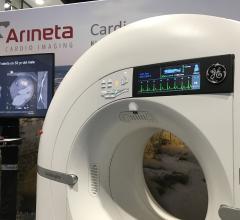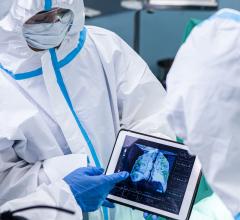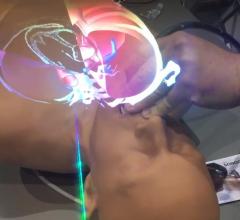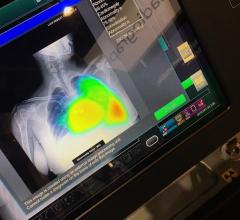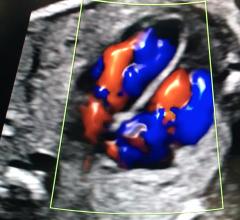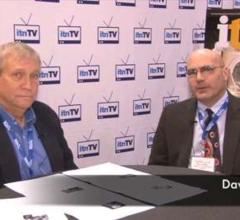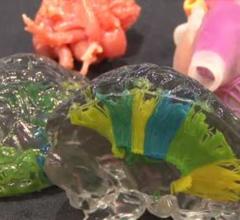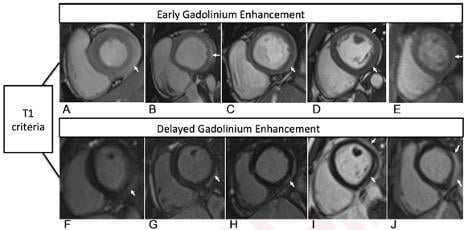
T1-Based Criteria for Myocarditis on Cardiac MRI in Patients With Recent COVID-19 mRNA Vaccination.[1] Early gadolinium enhancement (EGE) compared with precontrast SSFP sequence (not shown) is observed on early post-contrast short-axis SSFP images in (A) 16-year-old male, (B) 17-year-old male, (C) 16-year-old male, and (D) 19-year-old male, and on early postcontrast short-axis perfusion image in (E) 17-year-old male (arrow, A-E). Late gadolinium enhancement (LGE) is also present (arrows) in all 5 patients (F, G, H, I, and J; same patients as in A, B, C, D, and E, respectively). EGE and LGE predominantly affect subepicardium of the inferior, inferolateral, or anterolateral walls. EGE extends beyond confines of LGE in patient shown in (A) and (F) and in (B) and (G). Basilar LV involvement is present in patient shown in (A) and (F), (B) and (G), and (C) and (H). Mid-cavity LV involvement is present in patient shown in (D) and (I) and in (E) and (J).
February 17, 2022 — While cardiac imaging shows that COVID-19 vaccine–associated myocarditis has a similar pattern as that from other causes, the abnormalities are less severe and result in less functional impairment, suggests a study yesterday in Radiology.
Myocarditis (inflammation of the heart muscle) after vaccination is rare, but some cases have been reported after receipt of the Pfizer/BioNTech or Moderna mRNA COVID-19 vaccine.
University of Toronto researchers retrospectively studied the electronic health records of 92 adults diagnosed as having myocarditis with one or more T1 and T2 abnormalities on cardiac magnetic resonance imaging (MRI) from December 2019 to November 2021.
Among the 92 patients, 22% were diagnosed as having myocarditis within 14 days after COVID-19 vaccination, 11% had myocarditis after COVID-19 illness, and 66% had myocarditis from another cause (non–COVID-19 infection in 31%, autoimmune disorder in 13%, drugs in 10%, hyper-eosinophilic blood disorder in 5%, and other/unknown in 41%).
MRI showed late gadolinium enhancement (LGE) (indicating myocardial injury) in 81% of vaccine-associated myocarditis patients and left ventricular dysfunction in 29%. These patients had higher left ventricular ejection fraction and less extensive LGE after controlling for age, sex, and time between symptom onset and MRI. Septal involvement was less common in this group.
Of patients with vaccine-associated myocarditis, symptom onset occurred after receipt of the Moderna COVID-19 vaccine in 57% of cases and after Pfizer in 43%. Most cases (81%) occurred after the second dose.
Average age was 31 years in the first group, 51 years in the second group, and 44 in the third group. The first group had a higher proportion of men (81%) than the other groups.
Fourteen vaccine patients (67%) were hospitalized for a median of 3 days. After a median of 22 days, all patients with vaccine-associated myocarditis were symptom-free and had no adverse events.
In a Radiological Society of North America (RSNA) news release, coauthor Paaladinesh Thavendiranathan, MD, said that patients should not let fear of myocarditis keep them from being vaccinated against COVID-19. "The risk of myocarditis seems to be much higher following COVID-19 illness," he said. "However, if patients do experience symptoms—especially chest pain—early after COVID-19 vaccination, they should seek medical attention."
For more information: www.rsna.org
Related Long-COVID Content:
MRI Sheds Light on COVID Vaccine-Associated Heart Muscle Injury
What We Know About Cardiac Long-COVID Two Years Into the Pandemic
VIDEO: Long-term Cardiac Impacts of COVID-19 Two Years Into The Pandemic — Interview with Aaron Baggish, M.D.
VIDEO: Long-COVID Presentations in Cardiology at Beaumont Hospital — Interview with Justin Trivax, M.D.
VIDEO: Cardiac Presentations in COVID Long-haulers at Cedars-Sinai Hospital — Interview with Siddharth Singh, M.D.
Find more COVID news and videos
Related COVID Content:
COVID-19 Fallout May Lead to More Cancer Deaths
Kawasaki-like Inflammatory Disease Affects Children With COVID-19
FDA Adds Myocarditis Warning to COVID mRNA Vaccine Clinician Fact Sheets
CMS Now Requires COVID-19 Vaccinations for Healthcare Workers by January 4
Cardiac MRI of Myocarditis After COVID-19 Vaccination in Adolescents
Small Number of Patients Have Myocarditis-like Illness After COVID-19 Vaccination
Overview of Myocarditis Cases Caused by the COVID-19 Vaccine
Case Study Describes One of the First U.S. Cases of MIS-C
NIH-funded Project Wants to Identify Children at Risk for MIS-C From COVID-19


 October 08, 2025
October 08, 2025 

